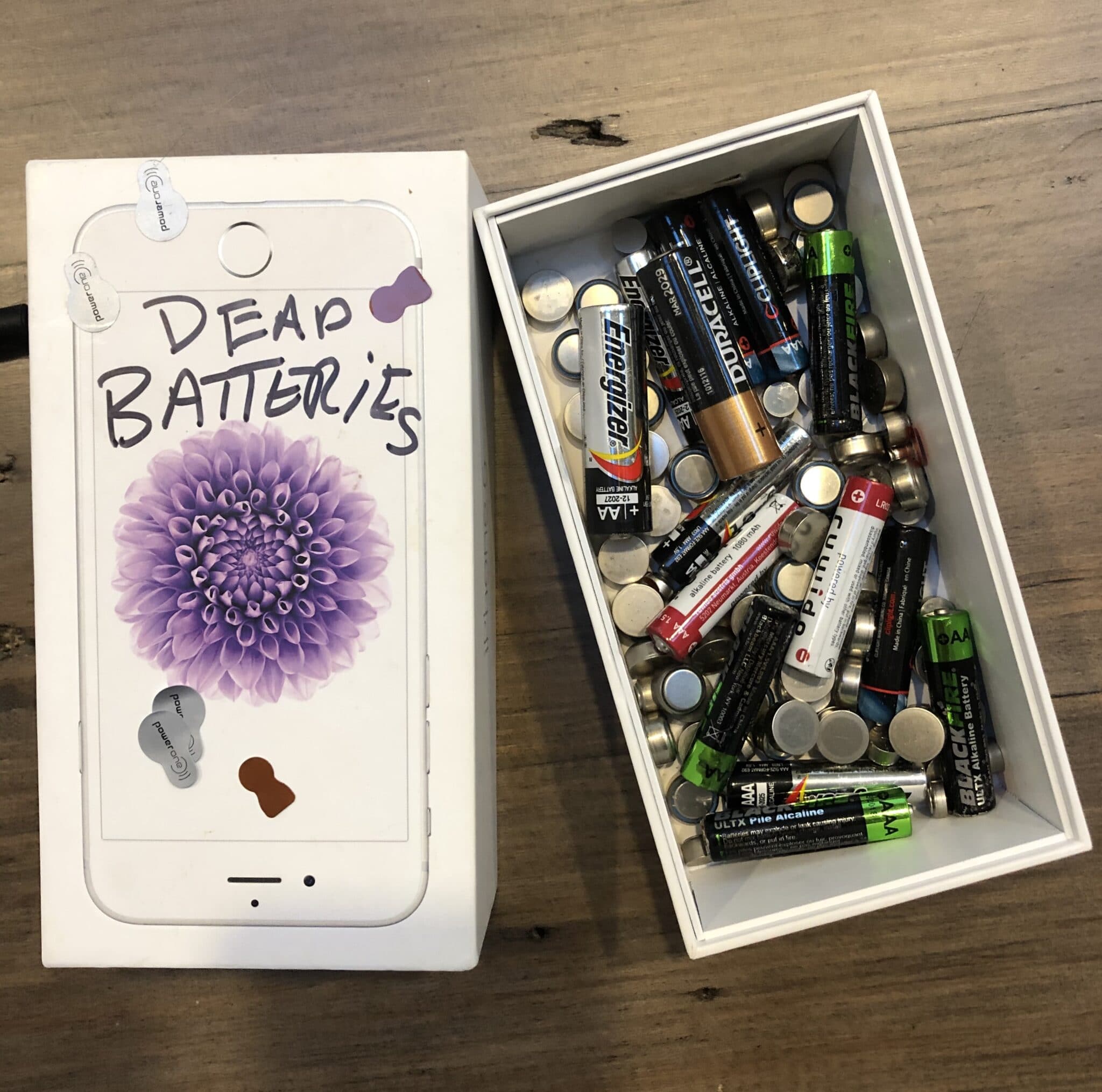I have a question: what do you do with the sticky tabs you’ve removed from your fresh hearing aid batteries?
This question was on Facebook the other day but I didn’t pause to read the responses. Now I’m curious – what do people do with them?
Someone told me that whenever she changes her battery, she puts the sticker on the calendar to give her an idea when the battery might gasp its last. But I don’t use a paper calendar anymore and I can’t think of another way to repurpose them. Once off the battery, they’re just colorful bits of uselessness.
And it’s not always easy getting rid of them; they don’t like to leave your fingers if you try to drop them in the garbage. I often just put them on the nearest stickable surface – a piece of paper, the battery package, anything really – with the intent of picking them off after I’ve finished the battery-change operation. But I forget, and because I use two devices and a lot of batteries, these stickies turn up everywhere. Once I found a couple of orange tabs on my toothbrush handle.
What I usually do, though, is remove the sticky tabs from the fresh batteries and put them on the dead batteries. (In one distracted senior’s moment, I pulled the stickies off the old batteries which I re-inserted into my hearing aids. This caused a wild jolt of panic when I couldn’t hear).
But there’s a more important question than the sticky tabs. While you are doing the recommended 60-second wait before inserting your freshies into your hearing aids (more about that in a minute), that’s a good time to dispose of the dead batteries. But how/where do you do this? One thing for sure:
Not. In. The. Garbage. Can.
Let me repeat that – don’t throw your dead batteries in the garbage. They are toxic and go into landfill. They are recyclable and so we should recycle them.
If I have to change my batteries when I’m away from the house, these batteries-with-stickies end up at the bottom of my purse. That’s what my purse is for – a collection depot for stuff that can’t be ethically disposed of, or if there was no garbage can available. I know it’s time to clean out my purse when I reach in for my wallet and come up with an old battery tab on my finger.
At home, batteries that have completed their tour of duty go into a collection box for dead batteries. When the box is full, we take it to the nearby recycling depot. From there they go to the battery recyclers, where they are sorted into chemistries such as lithium-ion, zinc, nickel-cadmium, etc., the toxic metals removed and then processed into various useful things.
Our local recycling depot is amazing – it takes almost anything. But if you don’t have access to one of these great places, ask your hearing healthcare provider if they accept dead batteries for recycling. Don’t listen to them if they tell you to throw them in the garbage. There are millions of people with hearing loss in the world today using gazillions of disposable batteries – that adds up to a lot of toxic landfill.
My hearing aid and cochlear implant sound processor don’t use rechargeable batteries, but I expect the next set I buy will use them. Apparently rechargeable batteries should last 4-5 years. Readers-Who-Use-Rechargeables – is that your experience?
Now, about that one-minute wait (some sources say four or five minutes) after the tab comes off – this allows air to reach the materials inside the battery and activate them. Apparently the battery charge will be better or perhaps last even longer. However, the sticky tab keeps batteries fresh while they are waiting to be put it into service, and when they are pulled off, the battery is immediately activated. I’m satisfied with my battery performance, so I don’t count to sixty before putting them.
Besides, I’m often in a hurry while changing a battery, because it usually goes dead during dinner with friends or when watching a show. Why would I want to sit and stare at my battery for a minute, let alone five minutes, when I can spend that time hearing and enjoying whatever activity the battery-fail interrupted?
Be a good battery-operated person: count to 60 if you want – but definitely recycle your batteries.
Thank you.







Great article – thanks for sharing!
Rayovac, hearing aid battery supplier with around 60% market share, has a different take on things.
https://www.rayovac.com/support/faqs/batteries/how-and-where-can-i-recycle-my-batteries.aspx
“Zinc Air batteries, used in hearing aids, cannot be easily recycled and are considered general household trash when they are drained. Please throw these out in the trash, collecting or saving them can present a choking hazard to children…”
Thanks for the reminder, Gael. I somehow got out of the habit of recycling my Hearing Aid Batteries. And now that I am bi-modal, I use more batteries than ever. So I checked my local Batteries+Plus store (www.batteriesplus.com/t/recycling) and they recycle more than just batteries, so I’m going to use that resource. But I still don’t know what to do with those sticky tabs!
I throw mine in the trash can, because we don’t have recycling centers. (Philippines)